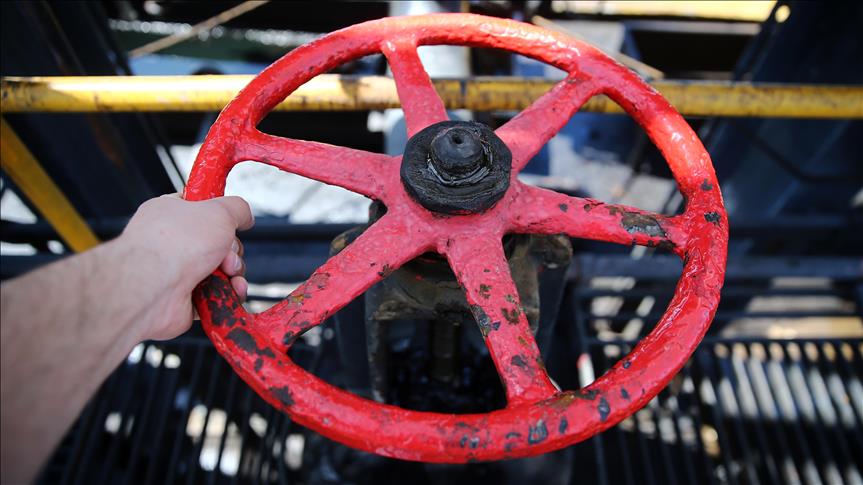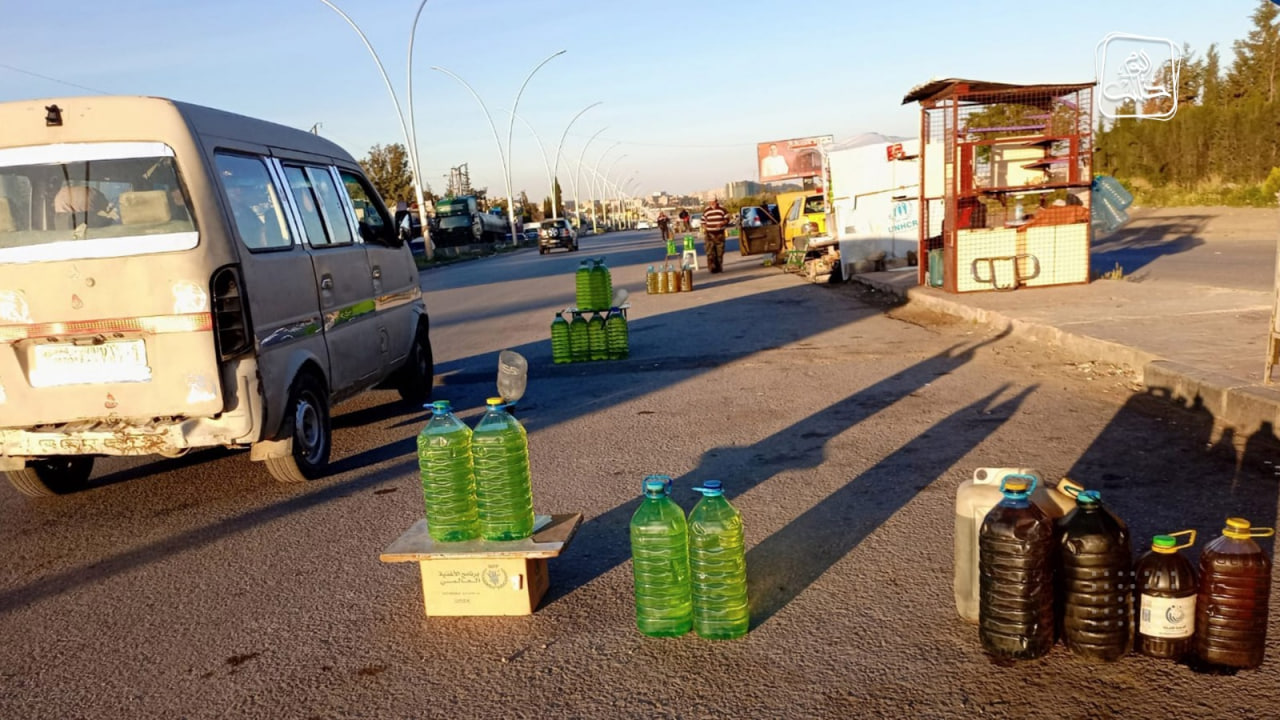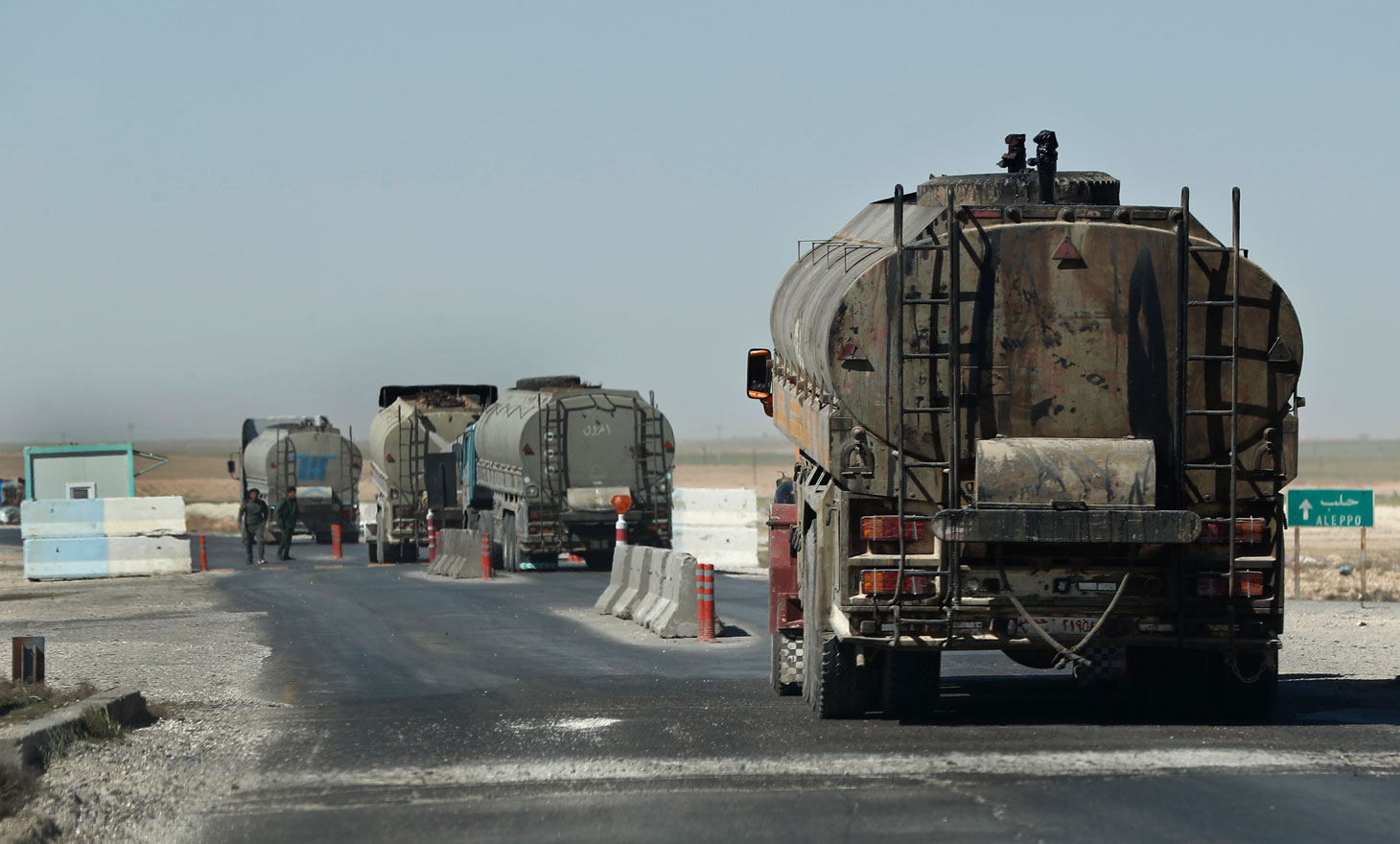How Syria Is Securing Oil During the Transitional Phase?

There are concerns among major oil traders about engaging in the Syrian market.
The transitional government in Syria is working to import crude oil and fuel shipments to alleviate the severe energy crisis caused by Western sanctions.
The new administration is racing to spark economic recovery, ushering in a new era after the fall of Bashar al-Assad's regime, which drained Syria's resources in a brutal war.
Securing Oil
In its attempt to import oil through local intermediaries, the first tenders issued by the Syrian transitional government for oil imports failed to attract significant interest from major oil traders due to ongoing sanctions and financial risks.
The government issued tenders to import 4.2 million barrels of crude oil, as well as 100,000 metric tons each of fuel oil and diesel “as soon as possible,” according to copies of the tender documents.
The tenders, which closed on January 27, have not been awarded and the government is now negotiating with local companies to meet the requirement, several trade sources told Reuters.

The difficulty in finding major fuel suppliers could exacerbate Syria’s energy security challenges under the new authorities.
Before the fall of Assad's regime on December 8, 2024, its controlled areas relied on regular oil and fuel deliveries from Iran.
Local shipments were purchased from areas controlled by the Syrian Democratic Forces (SDF) in the northeast, which control 90% of Syria’s oil and gas production.
The SDF was supplying the ousted regime with nearly 20,000 barrels daily.
The ousted government distributed 6 million liters of diesel and 4 million liters of gasoline daily in its areas of control.
The new government has begun a difficult challenge to restore energy security and supply necessary fuel to government institutions, hospitals, and power plants.

However, major oil trading companies did not participate in the tenders, citing sanctions and financial risks, according to sources within the industry.
“There is still no clarity on whether the EU sanctions have been lifted. This is also compounded by broader banking issues,” a Middle East trader familiar with the tender said.
In late January 2025, the European Union announced it had approved a roadmap to ease sanctions on Syria to accelerate its recovery, but it would take a gradual approach that could be reversed if wrong steps were taken.
The sources also noted that payment terms discouraged potential sellers from participating, including the provision of open credit for later payment.
Sellers were also required to provide a performance bond ranging from $200,000 to $500,000 to a Syrian bank as a guarantee for oil delivery, a condition that traders said was unusual.
According to the new Syrian Minister of Oil, Ghiyath Diab, oil production in government-controlled areas stands at 10,000 barrels per day, compared to around 383,000 barrels per day before international sanctions were imposed in 2011.
“We produce 8 million cubic meters of gas daily from the areas under our control, and we are working to increase this,” Diab told CNBC Arabia on January 13, 2025.
“We hope to activate several gas and oil transportation lines between countries through Syria soon, and there are various partnership proposals with Turkiye, though we haven't seriously pursued any of them,” he added.
Diab emphasized the need to establish global and foreign partnerships to access modern technologies in the sector. “Our priority is to prepare and evaluate the fields to present them to global companies.”
He also suggested opening the sector to private companies “for importing petroleum products, but not for distribution and importation,” noting that this would be available to all international parties, traders, companies, and countries.
According to Kepler shipping data analysis, no shipments of crude oil have arrived from Iran since November 2024, indicating that the ousted regime's storage tanks were empty.
‘Sanction Obstacle’
Damascus issued a tender on January 20, 2025, to import 20,000 tons of liquefied petroleum gas, but sources suggest the outcome was unfruitful.
Iran had been supplying the ousted regime with around 70,000 barrels of oil daily, refined at the Baniyas refinery on Syria's coast.
This refinery is the largest in the country, processing between 90,000 and 100,000 barrels of crude oil daily.
The Director-General of Baniyas, Ibrahim Muslem, confirmed that the new Syrian government is waiting for the lifting of sanctions on the country, which would allow Syria to import oil from other sources.
A closer look at the nature of Western sanctions on Syria's energy sector reveals that the European Union imposed them on 318 individuals and 86 entities in response to the Assad regime's crackdown on the revolution.
These sanctions included measures such as a ban on the import of crude oil and petroleum products from Syria, as well as restrictions on investments in this sector.
The sanctions also included a ban on investments in the construction of new power plants in Syria and restrictions on providing technical or financial assistance for their construction.
The sanctions also imposed restrictions on the export of equipment necessary for the oil and natural gas industries to Syria.

In addition to European Union countries, the United States also imposed a ban on importing Syrian oil and petroleum products in August 2011.
Sanctions prohibited U.S. citizens from engaging in transactions related to Syrian petroleum products.
“The issue of importing oil and fuels to Syria in this transitional phase is linked to the sanctions imposed on the country because of the ousted regime,” Syrian economist Firas Shabou told Al-Estiklal.
“Local importing companies and agents are wary of the sanctions' impact due to their dealings with the current Syrian government.”
“The key to restoring Syrian oil production to its former levels lies in the easing of Western sanctions, particularly given the current state structure,” he said.
“Legal matters need to be clarified for large companies and suppliers that were deterred from entering tenders and bids because the situation is unsafe for them in terms of financial transfers and payment methods.”
“Easing sanctions on Syria would allow importers to participate in government tenders to import oil and fuels from abroad to meet local demand,” Shabou added.
“The presence of institutions and a legislative council during the transitional phase, coupled with the lifting of sanctions, will open the door for importers and companies to partner with Syria, as the market now presents a promising opportunity for investment and trade across multiple sectors, including energy.”
Financial Measures
Providing electricity to the public is one of the new Syrian government's main tasks to solidify its rule and achieve stability.
Syrian President Ahmed al-Sharaa announced the goal of providing eight hours of electricity daily by the end of February 2025.
For this reason, the transitional presidency's search for urgent solutions in the energy sector compels it to take advantage of the easing of sanctions to rehabilitate Syria's oil sector as part of broader reconstruction efforts.
This is especially since Syria has the potential to significantly increase its oil and natural gas production, which could provide energy and government revenues critical to its stability and reconstruction.
Alternative agreements with some Arab oil-producing countries are essential in this regard.
Syrian researcher at the Omran Center for Strategic Studies, Ayman Dasuki, pointed out that “the new Syrian leadership's efforts have not yet yielded results in attracting the interest of major oil traders to supply the Syrian market with its energy needs.”
“This can be explained by several factors, most notably the high risks associated with sanctions on Syria, regarding dealings with Hayat Tahrir al-Sham, classified as a terrorist group, from which most of the leadership of the new administration hails, as well as the lack of clarity regarding temporary exceptions from the sanctions,” he told Al-Estiklal.

“The hesitation of major oil traders to take part in the tenders can be attributed to issues related to payment processes, as importing large quantities of this material requires substantial funds, banking mechanisms, guarantees, and transparency, which the new administration has not yet addressed.”
This reinforces the concerns of major oil traders about engaging in the Syrian market.
It is worth noting that the fluctuation in the exchange rate of the Syrian pound against the dollar is also linked to the fuel and oil crisis.
This is especially true as the new Damascus government decided on December 25, 2024, to set fuel prices in U.S. dollars through a specialized committee for traders and stations, incorporating costs and converting them according to the exchange rate adopted by the Central Bank.
As a result, there is currently heavy reliance by Syrians on the black market to cover their fuel needs, where prices vary based on demand.
The price of a liter of gasoline or diesel in Syria is currently around 12,000 Syrian pounds (with one dollar equaling 10,200 Syrian pounds).
Sources
- Syria turns to intermediaries for oil imports after low interest in tenders, sources say
- Syria's new administration seeks lifting of energy sanctions to revive economy
- Syria turns to brokers to import oil amid lack of interest in its tenders [Arabic]
- Syrian Oil Minister: We will start exploring for oil and gas soon [Arabic]
- Syrian Petroleum Company allows the private sector to import fuel [Arabic]











